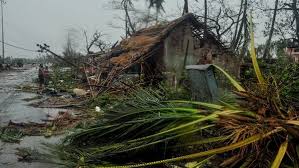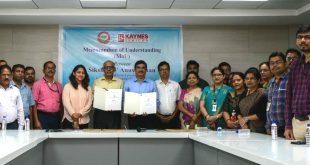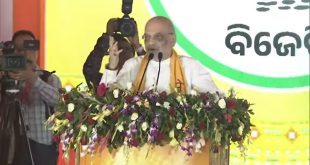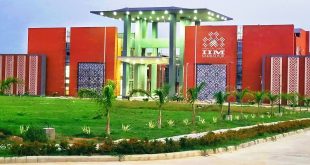Bhubaneswar: Odisha Chief Minister Naveen Patnaik on Tuesday released the Cyclone Fani — Damage, Loss and Needs Assessment (DLNA) report.
Among the prominent dignitaries present in the meeting were the United Nations Resident Coordinator in India, Renata Lok-Dessallien. The representatives of World Bank, ADB, UN, and other organisations were also present in the meeting. Besides, officials of Odisha government were present on the occasion.
The Extremely Severe Cyclonic Storm Fani which hit the coast of Odisha on 3rd May this year was one of the rarest of rare summer cyclones, caused extensive damage and impacted life and property of more than 1.65 crore people in 14 districts of Odisha.
Post cyclone, the Government of Odisha, under guidance of Government of India and in collaboration with the World Bank, Asian Development Bank and the United Nations undertook the Damage, Loss and Needs Assessment (DLNA) to support the cyclone recovery process.
The assessment was spanned over a period of 20 days comprising of a team of more than 100 multi-sectoral experts from the World Bank, ADB and various agencies of United Nations along with officials from several departments of the State Government, local NGOs and eminent experts.
The estimation of the damage and losses by the assessment team is based on the data available at the level of departments, and validation of the same by field visits to most affected districts.
It estimates the total damage and loss to be Rs 24,176 crore (US$ 3.4 billion) and recovery needs Rs 29,315 crore (US$ 4.1 billion).
The infrastructure sectors were the hardest hit and constitute about 42% of the total needs and the social sectors which include housing, constitute 36% of the total needs.
The Damage and Loss Needs Assessment (DLNA) report provides an overview of the macroeconomic and human impact of the disaster and is a first step towards laying recovery roadmaps and achievement of a vision for disaster resilient Odisha.
It proposes a recovery strategy built around three pillars; Resilient Housing, Resilient Infrastructure and Resilient Livelihoods. Odisha has set global benchmarks in handling disasters by leveraging technology, strengthening institutional capacities and building resilient measures that helped it face this calamity of national magnitude.
DLNA was one
of such initiatives which brought global best practices and knowledge for
fostering ‘Built Back Better’ in the recovery efforts post cyclone ‘Fani’. The
DLNA will contribute significantly towards expediting the reconstruction and
recovery processes in the State.
 Update Odisha-Odisha News I Latest News Get latest news on Odisha, Govt. Jobs, OSSC, OPSC, Entertainment, Crime, Sports, and Education
Update Odisha-Odisha News I Latest News Get latest news on Odisha, Govt. Jobs, OSSC, OPSC, Entertainment, Crime, Sports, and Education



